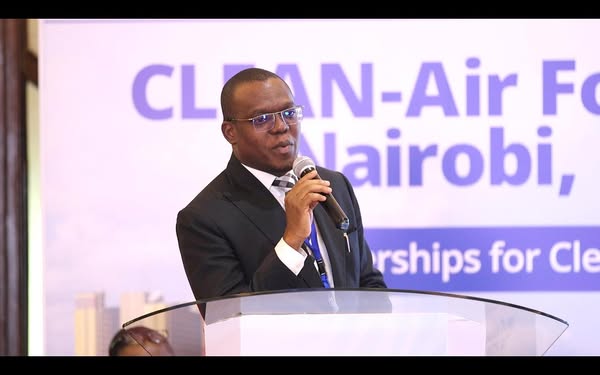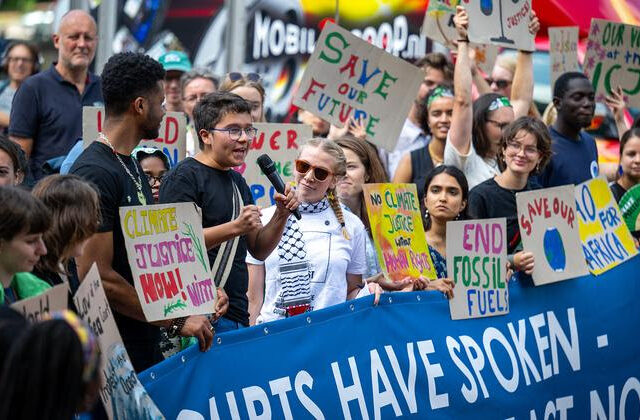In a compelling global address titled “A Moment of Opportunity: Supercharging the Clean Energy Age,” United Nations Secretary-General António Guterres outlined a bold, evidence-backed vision for a world rapidly moving away from fossil fuels and toward a sustainable, inclusive, and just clean energy future.
While acknowledging the chaos of today’s world—marked by wars, inequality, and climate emergencies—Guterres emphasized a quieter but transformative story unfolding: the rise of the clean energy revolution.
Throughout human history, energy has been the backbone of progress—from fire to steam to nuclear power. Today, Guterres asserted, we stand on the edge of another historic transformation. “The sun is rising on a clean energy age,” he declared.
The numbers back him up. According to data from the International Renewable Energy Agency, $2 trillion was invested in clean energy last year—$800 billion more than fossil fuels. Solar energy, once four times more expensive than fossil fuels, is now 41% cheaper. Offshore wind costs have dropped by 53%. Most strikingly, over 90% of new renewable energy globally now produces electricity cheaper than the most affordable new fossil fuel options.
This transition is not only helping reduce carbon emissions—already, solar and wind have saved as much emissions as the EU produces in a year—but also about energy security, economic growth, and improved livelihoods. Clean energy jobs now outnumber fossil fuel jobs, employing 35 million people globally. Even oil strongholds like Texas are leading in renewables.
The Secretary-General noted the economic irrationality of continuing fossil fuel dependence. “Countries clinging to fossil fuels are sabotaging their economies,” he said, pointing to the massive 9-to-1 imbalance in global consumption subsidies favoring fossil fuels, not accounting for the environmental and health costs they impose.
Another key pillar of Guterres’ message was energy security. Fossil fuels expose nations to volatile markets, geopolitical turmoil, and price shocks—as seen during Russia’s invasion of Ukraine. In contrast, renewables offer stable, sovereign energy independence.
Moreover, renewables provide an opportunity to close the electricity access gap. Technologies like off-grid solar can deliver electricity to the most remote communities, particularly in Africa, which Guterres described as “bursting with renewable potential.” By 2040, he said, Africa could generate ten times its electricity needs from renewables alone.
Despite progress, Guterres warned that the transition is neither fast nor fair enough. Africa currently accounts for just 1.5% of installed renewable capacity. To correct this imbalance, Guterres called for a massive scaling up of investments, infrastructure, and international support—especially for regions that have historically been exploited for resources.
A just energy transition, he stressed, must prioritize equity and opportunity for fossil fuel workers, women, Indigenous Peoples, and vulnerable communities. Critical minerals—essential for clean energy—must be extracted responsibly, with human rights at the center.
To accelerate global momentum, Guterres laid out six areas of opportunity:
- Updated National Climate Plans: Countries must submit bold, clear national plans aligned with the 1.5°C target, including net-zero roadmaps, policy reforms, and investment incentives. G20 countries, responsible for 80% of emissions, must lead.
- Building 21st Century Energy Systems: Infrastructure is lagging behind renewable generation. Investment must flow into modern grids, storage, electrification, and regional energy integration.
- Meeting Surging Demand Sustainably: As global electricity demand rises—driven by cities, AI, and technology—governments must ensure all new demand is met through renewables. Guterres challenged tech firms to power all data centers with 100% renewables by 2030.
- Ensuring a Just Transition: The clean energy economy must be inclusive, with strong social protection and international cooperation to support developing countries transitioning from fossil fuels.
- Leveraging Trade and Investment: Clean energy development must be underpinned by diverse, secure supply chains and fair trade practices. Guterres urged an overhaul of outdated investment treaties and climate-unfriendly investor-state dispute provisions.
- Mobilizing Finance: Perhaps most critically, the Secretary-General called for a reformed global financial system that can channel capital into developing nations. Currently, only 2% of clean energy investment reaches Africa. This must increase fivefold by 2030 to meet climate and development goals.
Guterres closed with a powerful reminder: the fossil fuel era is “flailing and failing.” A new age—fueled by sunlight, wind, and innovation—is within reach. But this shift will not happen fast enough or fairly enough unless world leaders, businesses, and communities act now.
“We have the tools to power the future for humanity,” he said. “Let’s make the most of them.”







